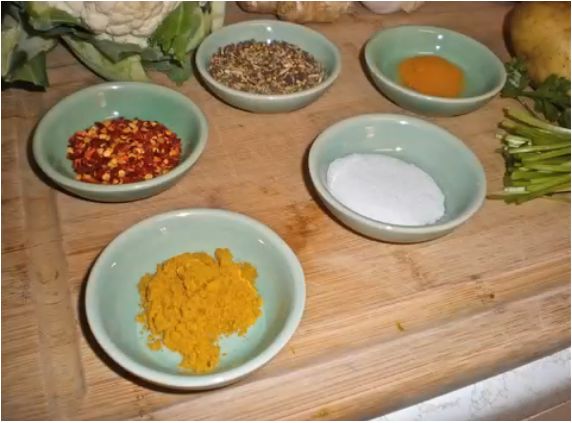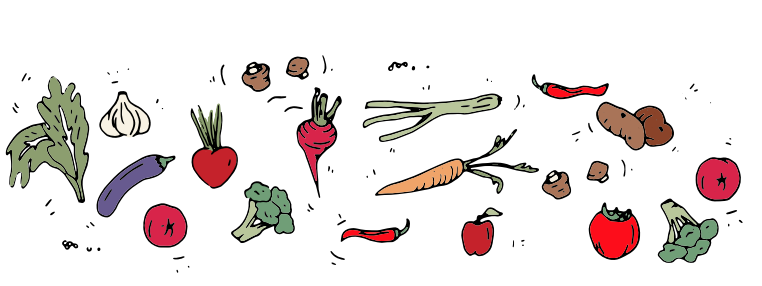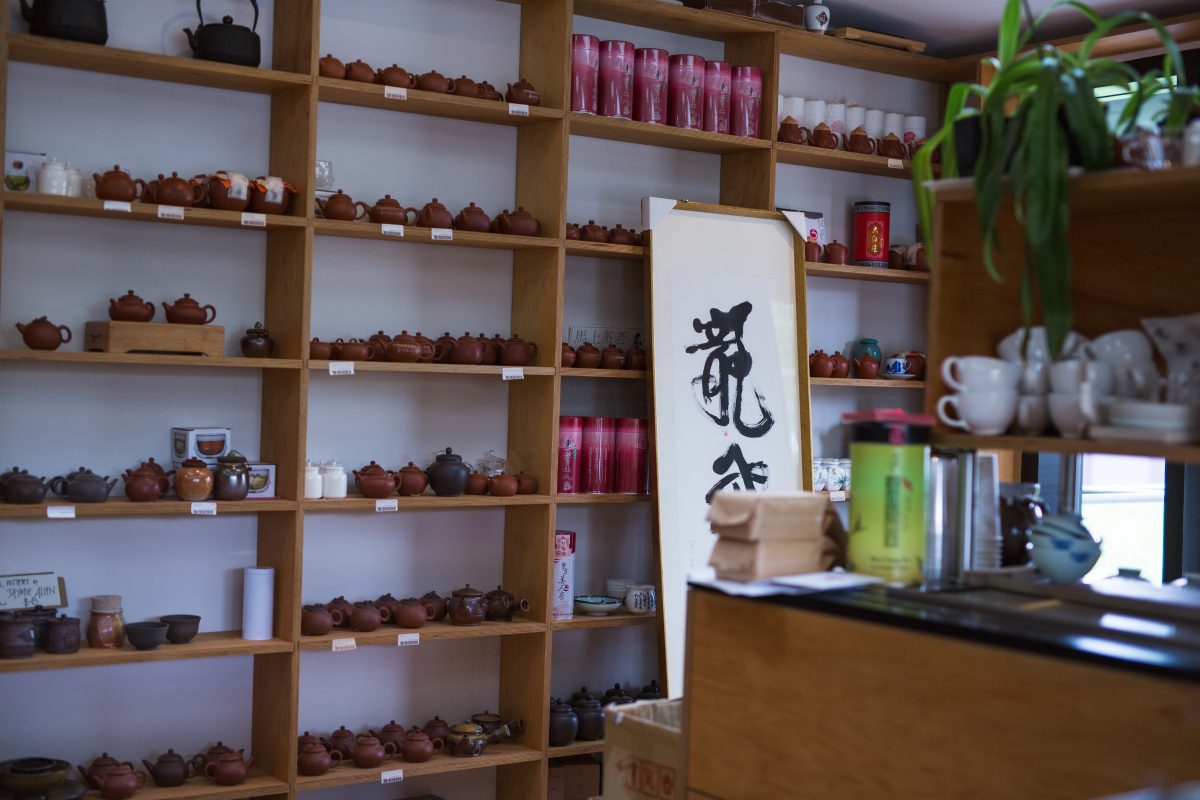Story by Neethu Ramchandar
Through a dark hallway, the clinking of stainless silver pots and pans invites the stomach while the aroma of Nepali cuisine lures an audience. The kitchen, consisting of a large island, nearly a dozen burners, ovens, and a three-part sink, lacks any kind of machinery expected for a production of this sort. Instead, Shiba Bhattari, owner of Katmandu Foods, sweeps through her Salem kitchen stirring pots and adjusting temperatures without hesitation. Shyly lifting the pleats of her long black skirt, Shiba reveals a pair of black work shoes and the secret to her success. “I’m here from seven in the morning till about six or seven at night,” she explains. “Sometimes I just wish I could expand a twenty-four hour day into a forty hour day.”
In 2002, the idea of Katmandu Foods began to simmer when Shiba invited a stranger into her home to share a meal. Her husband, Krishna, explains: “We had gone to a garage sale and bought a food processor.” When the extra parts were delivered to their home, the couple found themselves peppered with compliments. Letting the long white grains of rice fatten in the cooker as a pot of buttery ghee and lentils mingled with the spices of Nepali chilies and coconut milk to make Dhal, Shiba invited a stranger into her kitchen as she was making lunch for her children.
The woman wondered aloud how something so delicious could be so rarely known to the western world. After sharing a meal and a conversation, Shiba found herself inspired to spread the joy of food. Following the advice of her friends, Shiba began cooking for others. She had small groups of friends over to their home to teach them how to cook Nepali curry-based foods. However, Shiba’s friends soon expressed to her that the combination of spices was often hard to find and measure. At their request, she began creating recipes and packets of spice combinations to make Nepali cooking easier.
What started with plastic bags full of spices and a few cooking classes has now grown into a large kitchen space outside of her home, a production company, and a label: Katmandu Foods. Shiba and her husband were able to open their first production company and later expanded to a larger kitchen. In addition, they have a store where they sell all of their products. However, due to slow business, Krishna explains that they are considering closing the store and have stopped the cooking classes.
Shiba explains that her food is based on Nepali cooking. However, in order to provide comparisons for her customers, she often calls it Indian Curry, which is very similar. Both foods include vegetable concoctions heavily surrounded by spicy additions called curry, chutney relishes that assimilate western ideas of pickling with a spicy twist, and of course a base of Chaval (rice) for almost every meal. But there are differences in the spiciness of the food and the bases. Indian food is known for being exponentially spicier that Nepali food. In fact, Shiba adds with a proud wave of a ladle slightly dripping the juice of her Aloo Gobi (potatoes and cauliflower curry) onto the stove, many of her customers explain that while they are unable to handle the spice of Indian cuisine, they can’t get enough of Shiba’s Nepali concoctions.
Krishna, observing the production from a stool on the side of the kitchen, his green sweater matching the assortment of vegetables laid across the island ready to be cooked, adds that the reasoning behind the spice measurements of Nepali food is to make it accessible to all audiences. “If you have a joint family system where every meal needs to feed people between the ages of nine to ninety, the food can’t be too spicy for the children. So we create sort of a generic template of food and then set out an assortment of chutneys and pickles for spice and flavor.”
Shiba’s products start with those spices. Her product line includes over forty-one spice combinations, chutneys, and frozen meals. These products are available at many health conscious stores including Whole Foods and Market of Choice. The latest addition, according to Shiba, is that all nine New Seasons have started carrying her curry-based foods. And to make Nepali food easier for her customers to prepare, Shiba adds recipes in each of her packages. In each, there are dry foods, spices, and a shopping list of simple, vital ingredients like fresh onion, garlic, and ginger.
“Nowadays everyone eats out when they want foreign foods,” says Shiba. “But, it’s healthier when prepared at home. So I try to make things easy for people to cook and eat at home.”
This idea of health is integrated into the company’s slogan: “Healthy, Tasty, Satisfying.” Shiba explains that each of these components is important for her customers. “My food is simple and flavorful,” she notes. “However, if the food is only healthy, then no one will want to eat it. The tongue needs to be happy, too. And finally, the body and mind need to be satisfied and comfortable.”
Standing occasionally to add an ingredient, sample a dish, or patiently clean up empty dishes, Krishna explains, “If we eat properly, the food has a medicinal effect.” He continues to delve into the teachings of his parents adding that chutney is the noun form of chatnu, which means to lick. So, throughout a meal, some kind of chutney should be licked and savored. The flavors of the chutney then have the power to collect all the tastes into a pleasant blend. “There are six tastes in Nepali cooking ideology—salty, sweet, hot, astringent, bitter, and sour,” Krishna says as he adds yet another chutney to his plate. “The chutney helps to collect saliva in the mouth. And this saliva will react with the food as it goes into the stomach and digests.”
Shiba explains that creating and selling her food has not always been an easy task. At first, the cooking classes were very slow. She started them in order to teach people Nepali recipes, but it seemed as though people were not interested in doing the work themselves. However, the classes grew slowly by word of mouth. And when the products had finally been released, Shiba began to turn her passion into a business with the help of her husband. “He does everything from running errands to cooking and packing. Along with many of the business aspects,” notes Shiba as Krishna quietly talks business on the phone. As he once again joins her in the kitchen, Krishna adds that cooking is his wife’s passion, but he does everything he can to be supportive.
“Everyone dreams about being self-employed,” says Krishna with a thoughtful look in his eyes. “However, most people don’t understand that it can be very tough. Sometimes we go without health care, and sometimes we have no profit, so we reach into our savings just to keep the business alive. In fact, the only reason we have survived is because every year we change our focus. One year we focus on making the packaging the best it can be and then in the following years it may be the spices, labels, or introducing a new product. We have survived because we adapt with our business.”
Shiba’s food is renowned for being hand made and home cooked. Even more well-known is the fact that most of the food is prepared by the family. Shiba only hires part time workers when she needs to prepare large orders or get demos ready. Other than that, all of the food is made with the help of her family in their kitchen with only the freshest ingredients.
Despite the hard work, Shiba says that this is what she wants to do until the day she dies. As for her future plans, Shiba acknowledges that her current kitchen will not be big enough forever. Expansion is just as much desired as it is necessary. In addition to their cooking ambitions, Shiba and Krishna are working on a cookbook. They explain that everything for the book is prepared, now it’s only a matter of finding someone to help them print it. What makes this book unique is that along the sides there are cooking stories for the reader to enjoy. “It’s a book that you could buy and read even if you didn’t like cooking,” explains Krishna. “Every page has a story to inspire.”
Shiba says that the long days necessary to run their business are always worth it when she gets to see how pleased her customers are. She frequently invites people to her kitchen to sample the food. Recently, Shiba even invited a group of twenty chefs to her kitchen to learn how to create Nepali cooking. “When I see people eating my food, I watch their facial expressions and listen to the sounds they make. That’s the happiest moment for me. That’s a pleasure that I can’t buy, or sell, but I can cook.” Shiba says that she knows that her food is a success when people don’t say anything. “They don’t talk because they are enjoying the food that much. They close their eyes and make a humming sound. That’s when the food is the best.”
Categories:
Salem Spices
March 31, 2010

0
More to Discover













